Table of Contents
Have you ever bought a protein powder, BCAA drink or some other nutritional supplement and found it contained sucralose? Are you wondering what it is, and why does it appear in these products? The following article explains why this artificial sweetener is used and how it affects our health.
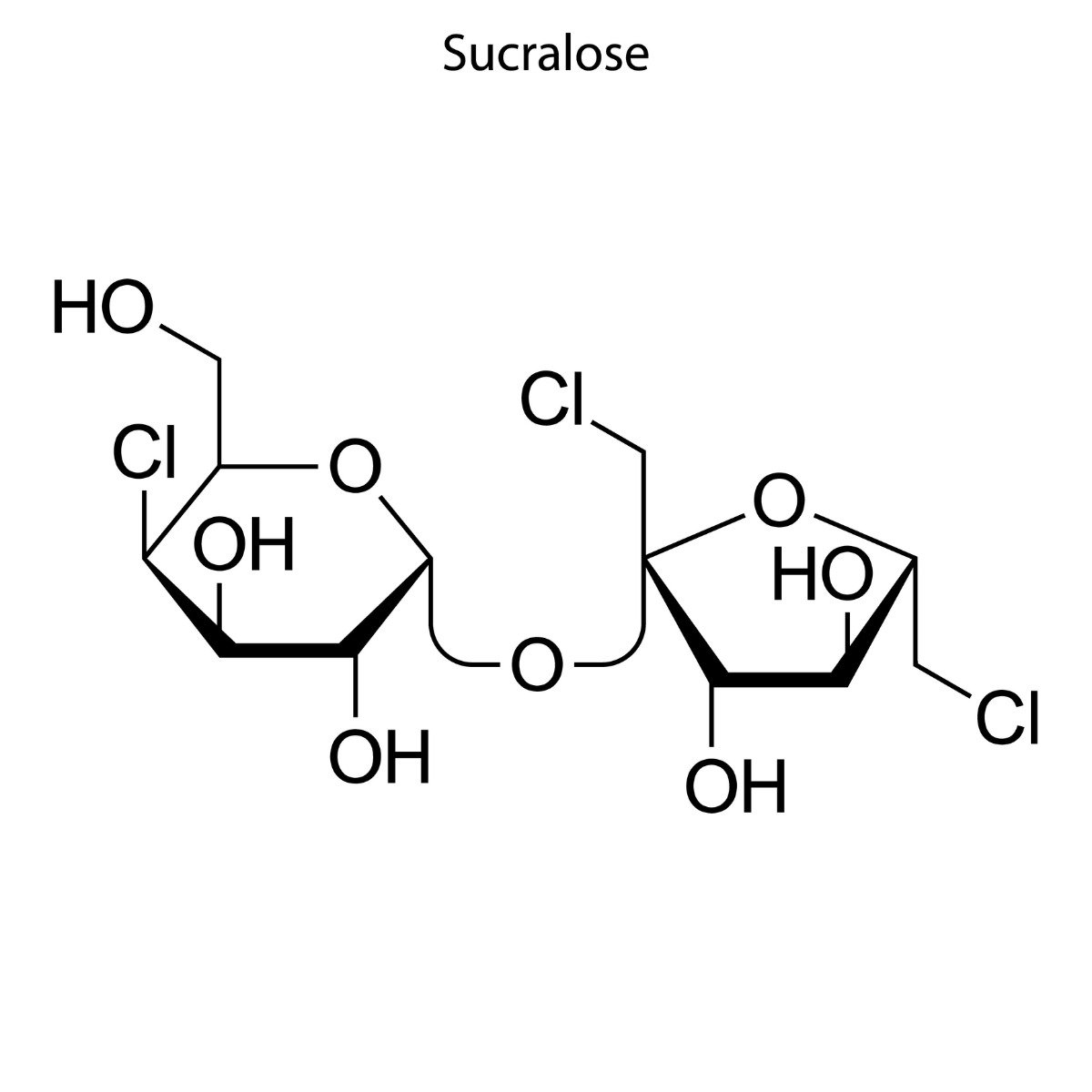
What is sucralose?
Sucralose is an E 955 food additive used as an artificial sweetener. It was invented in 1976 by scientists from the English company Tate & Lyle, namely Leslie Hough and Shashikant Phandis. Then, Mr Hough asked Mr Phandis to “try” the chlorinated sucrose derivative, which he understood to taste it. He found that the compound had a strong sweet taste. Tate & Lyle had sucralose patented the same year. [14]
Sucralose is a non-caloric sweetener used in the production of a variety of foods and beverages. It is produced by a process that starts just like the production of regular table sugar (sucrose). However, sucralose is not sugar. It differs from it in its chemical composition. Three selected groups on the sucrose molecule are replaced by three chlorine atoms, resulting in a non-caloric sugar-like sweetener. [1][4][14]
Although sucralose is very sweet, its chemical compound does not allow gastric juices to break it down. Up to 85% of sucralose teaspoon is not absorbed into the body. However, the 15% absorbed by the body is excreted in the short term via urine. For this reason, it is clear that sucralose does not contain any calories and does not bind to muscles or fats. [1][4][14]

You might be interested in these products:
Sucrose vs. sucralose
Sucrose is a naturally occurring sugar, commonly known as table sugar, and sucralose is an artificial sweetener. The chemical structures of the two sweeteners are interconnected but not identical. The molecular formula of sucralose is C12H19Cl3O8, while the formula for sucrose is C12H22O11. Thus, unlike sucrose, sucralose is enriched with chlorine. The sucralose molecule looks superficially like a sugar molecule. [1][14]
As mentioned earlier, sucralose delivers zero calories to the body compared to sucrose. It contributes 16 calories per teaspoon (approx. 4.2 g). Sucralose is about 600 times sweeter than sucrose and, unlike most artificial sweeteners, has no bitter taste. [4]

Facts and myths about sucralose
Many articles and studies have been written about sucralose, which have focused on its main benefits but also its negative effects on our health. Which of these statements are true and which are not?
1. Sucralose and weight loss
Sucralose, like all artificial sweeteners, contributes to weight reduction. Is this statement a myth or truth? The replacement of sugar-containing foods and sweetened drinks with sucralose products can contribute in certain extent to weight loss or to maintain momentary weight.
In a survey of members of the National Weight Control Register, the largest weight loss study, over 50% of all respondents said they regularly consume low-calorie drinks, of which 78% felt it helped control their calories. [10]
In one 18-month study, the effect of artificial sweeteners on weight was examined in 641 children aged 4 to 11 years. They received 250 ml of artificially sweetened drink per day for 1.5 years. They were found to lose some weight and fat compared to children who consumed sweetened drinks. [9]
People with severe overweight or obesity have begun to accept low-calorie sweet foods and drinks as one of the methods of weight loss. Replacing sweet drinks with artificially sweetened beverages resulted in an average weight loss of about 0.8 kg per month in adults. [8]
Using calorie-free sweeteners (such as sucralose) can help people lose weight or control their weight. However, low-calorie sweeteners (and products containing them) are not miraculous and consuming them will not result in high weight loss. They should be considered as tools that can integrate with your fitness lifestyle and behavioural practices such as eating a healthy diet, exercising regularly and getting enough sleep. By following these factors, your weight can be reduced in a healthy way. [2]

2. Effects of sucralose on blood sugar and insulin
Sucralose is said to have little or no effect on blood sugar and insulin levels.
Is it truth or myth? It all depends on the individual and whether you are used to eating artificial sweeteners regularly.
One study found that in 17 severely obese people who did not regularly consume artificial sweeteners, sucralose increased their blood sugar by 14% and their insulin level by 20%. [5][10]
Studies focused on people with normal weight did not find any effect of sucralose on blood sugar or insulin levels. However, these studies included people who regularly consumed sucralose. [6][7]
These studies suggest that if you do not consume sucralose regularly, you may experience minor changes in your sugar and insulin levels if you start taking it. However, if you consume sucralose regularly, these changes will disappear over time. Nevertheless, it is necessary to adhere to her recommended daily intake. Recently, experts have concluded that the use of low-calorie sweeteners in the treatment of diabetes may even contribute to better glycemic control. [2][5][6]
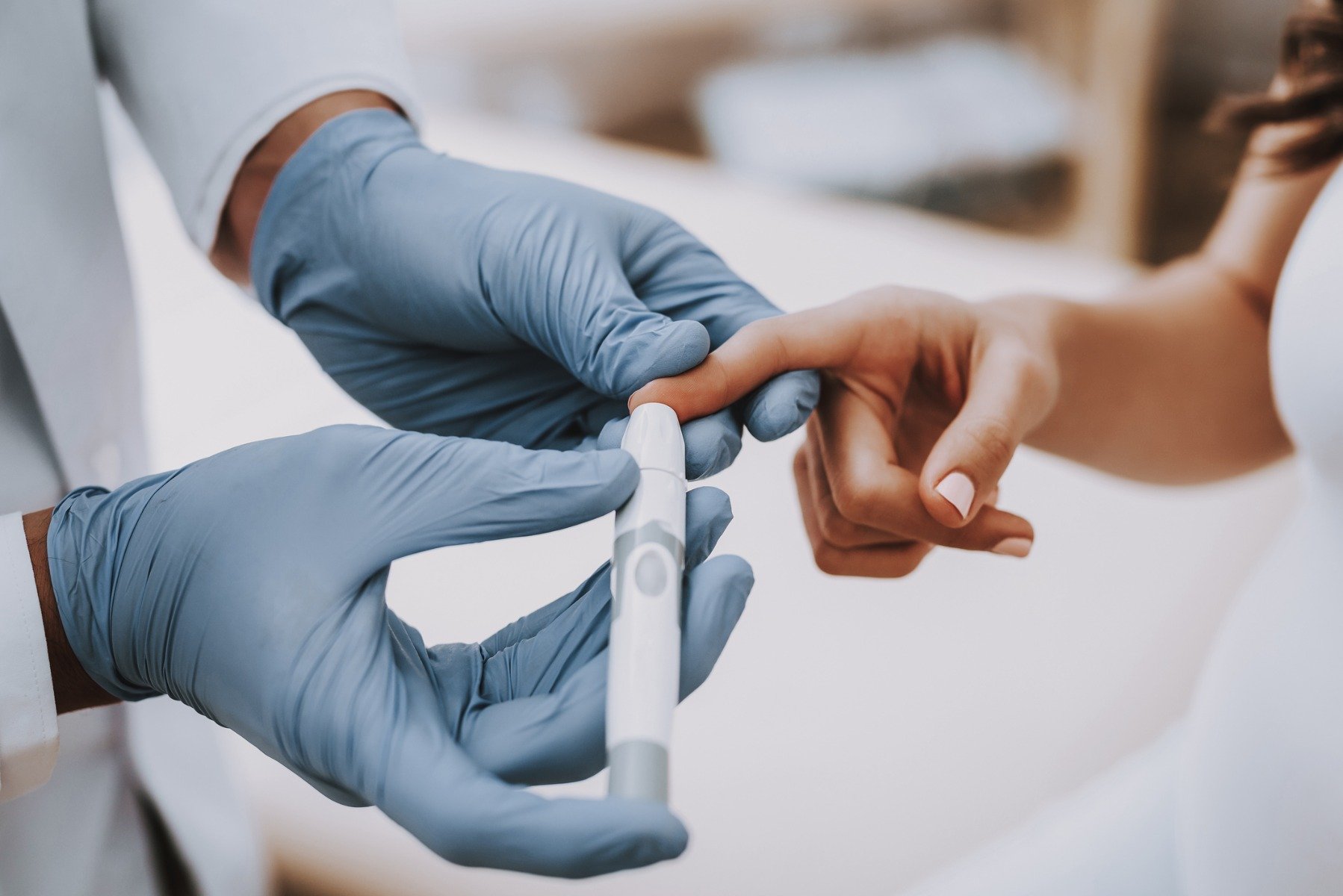
3. Sucralose causes cancer
Many articles refer to sucralose as a cancerous agent. The National Cancer Institute in the US also commented on this: “In 1998, sucralose was approved by the US Food and Drug Administration (FDA) as a universal sweetener. Prior to sucralose approval, the FDA evaluated more than 100 safety studies, including cancer risk assessment studies. The results of these studies have not shown that these sweeteners cause cancer or pose any other risk to human health.” [13]
4. Pregnant women and sucralose
Pregnant and breastfeeding women often worry about the impact of food, drinks and medicines on their children’s health. Research has shown that sucralose has no adverse effects on pregnant or breastfeeding mothers and there are no side effects of sucralose consumption known so far. Since only a small amount of sucralose is absorbed into the bloodstream, its presence in breast milk is very low. Moreover, sucralose-sweetened foods are also added to the baby’s diet, especially to prevent unwanted weight gain and prevent childhood obesity. [2][6][10]
5. Sucralose contains chlorine
Many people are discouraged from eating sucralose by the fact that it contains chlorine. Yes, the sucralose molecule contains three chlorine atoms, which increases the sugar intensity of the sugar and removes its calories. However, chlorine in sucralose is not separated or stored in the body. In fact, it is precisely the presence of chlorine atoms that prevents the decomposition of sucralose in the body into energy, thus becoming non-caloric. [14][17]
It is important to note that chlorine is a natural ingredient that is commonly found, for example, in table salt or peanut butter. Chlorine is also part of more complex molecules naturally occurring in other foods such as lentils, peas and potatoes. In addition, chlorine is added to most public drinking water supplies. [2][16][14]
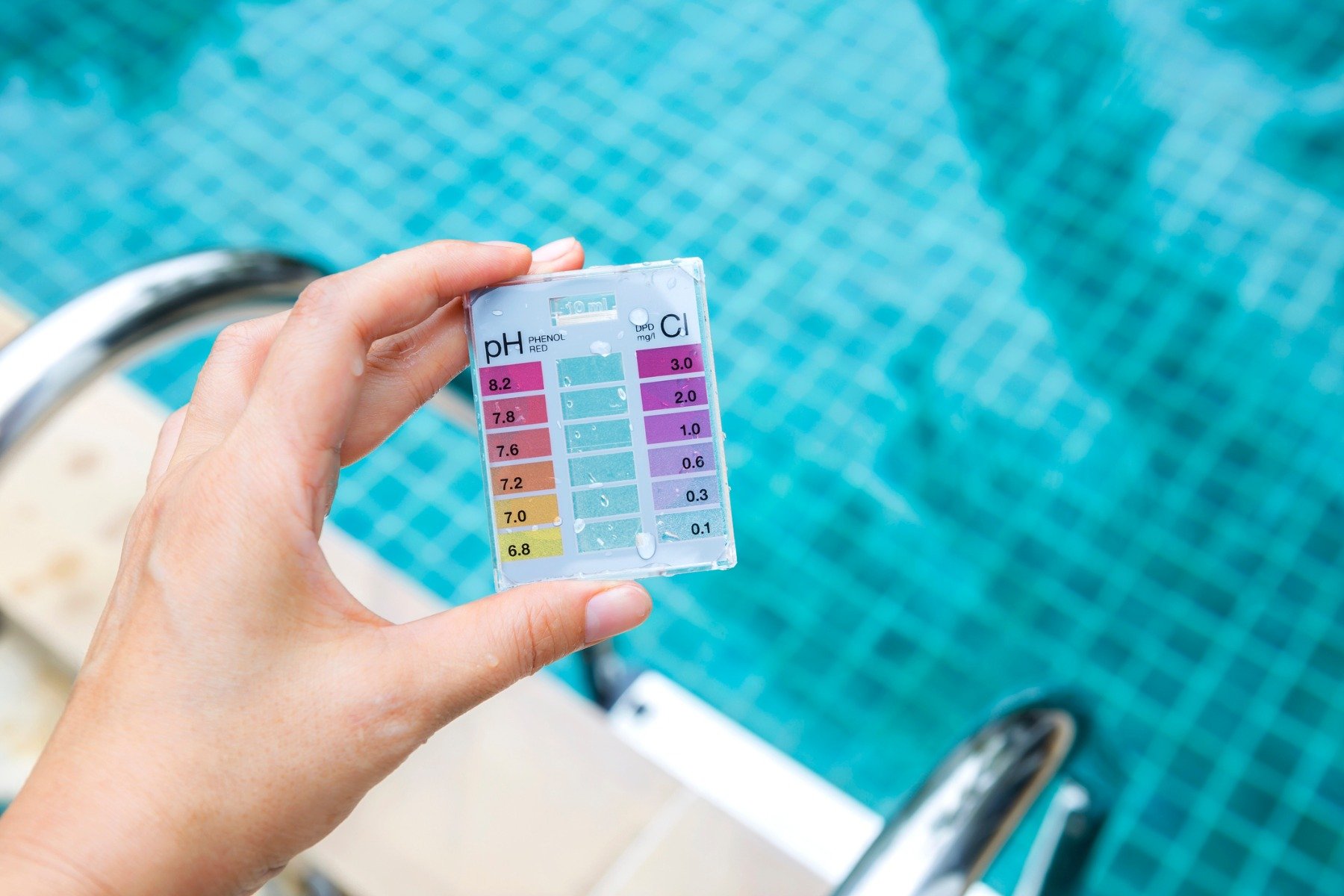
Products containing sucralose
Most products containing artificial sweeteners are referred to as ‘low calorie’ or ‘sugar free’ foods. Here are some tips where sucralose may be present:
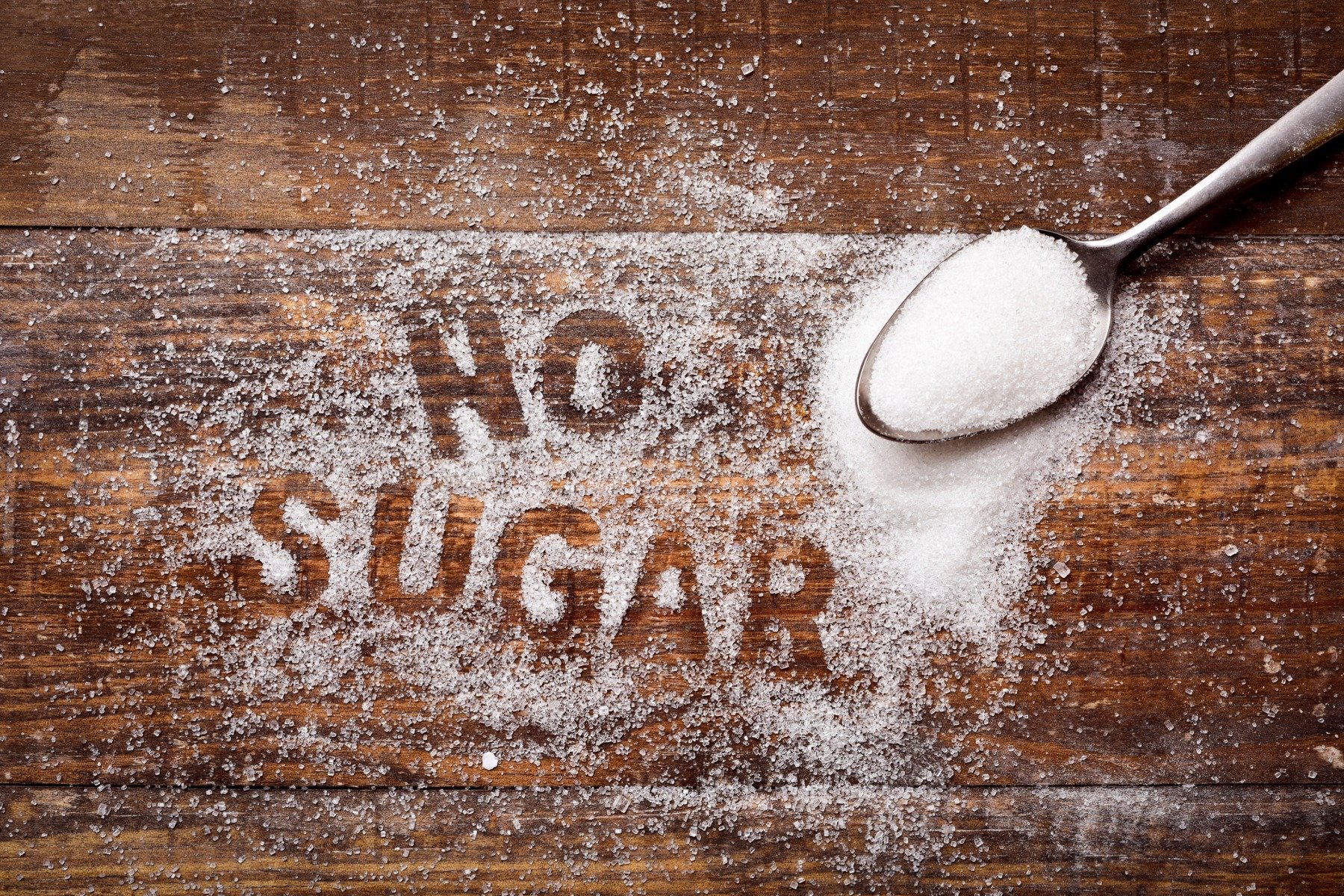
- Beverages – flavoured ice teas, sparkling water, fruit water and hot chocolate are examples of beverages that may contain sucralose. The use of this artificial sweetener reduces the amount of calories and sugar compared to sucrose-containing beverages. 350 ml of baking soda contains about 150 calories and 40 grams of sugar, while sucralose soda contains no calories or sugar. [10]
- Protein powders and meal replacements – protein supplements such as protein powder mixtures and energy or protein bars often contain sucralose as well. You can also find this substance in many energetic BCAA drinks and fitness foods such as protein pancakes, flavoured nut butter and calorie-free sauces.

- Confectionery and chewing gums – manufacturers of confectionery, such as sweets and chewing gums, which are very addictive, in many cases replace sugar with sucralose.

How to add sucralose to your diet?
If you want to add foods that contain less sugars and calories to your diet, reach for foods that contain sucralose. You can sweeten all your meals and drinks with them.
Here are some good tips on how to incorporate sucralose into your diet:
- Do not add sugar, if you sweeten tea and coffee, replace it with sucralose. Keep in mind that it tastes much sweeter than sugar, so its dosage needs to be lower.
- Replace high-calorie drinks such as lemonade, soda and flavoured coffee with products containing sucralose. Instead of an ordinary Cola, grab her sugar free alternative. Instead of classic energy drinks, try BCAA energy drinks that contain no sugar.
- Flavour your cakes or oatmeal with sucralose-containing products. You can also try protein powders or nut butters that contain sucralose.
Sucralose and its daily intake
The amount in which a substance is safe is characterized by its acceptable daily intake (ADI). This is defined as the maximum amount of a substance a person can take daily throughout his life, without any health risk. In 1991, the JECFA (Joint Expert Committee on Food Additives) established a temporary value for sucralose ranging from 0 to 15 mg / kg body weight. Based on this information, we can calculate that for a 80 kg weighing person, the maximum sucralose intake is 1200 mg per day. [18][19]
Possible side effects of sucralose
In order to experience the negative effects of sucralose in your body, you need to consume it in greater quantities over a longer period of time. If you take sucralose on a daily basis, you may eventually experience some side effects of sucralose. [11][17]
As mentioned above, sucralose is produced by adding chlorine to common sugar. Because of this change, sucralose passes through the digestive tract undigested. Thus, sucralose, as well as other artificial sweeteners, can cause bloating, flatulence and diarrhea. Sucralose can have high laxative effects when consumed in large quantities. [11] [12][15]
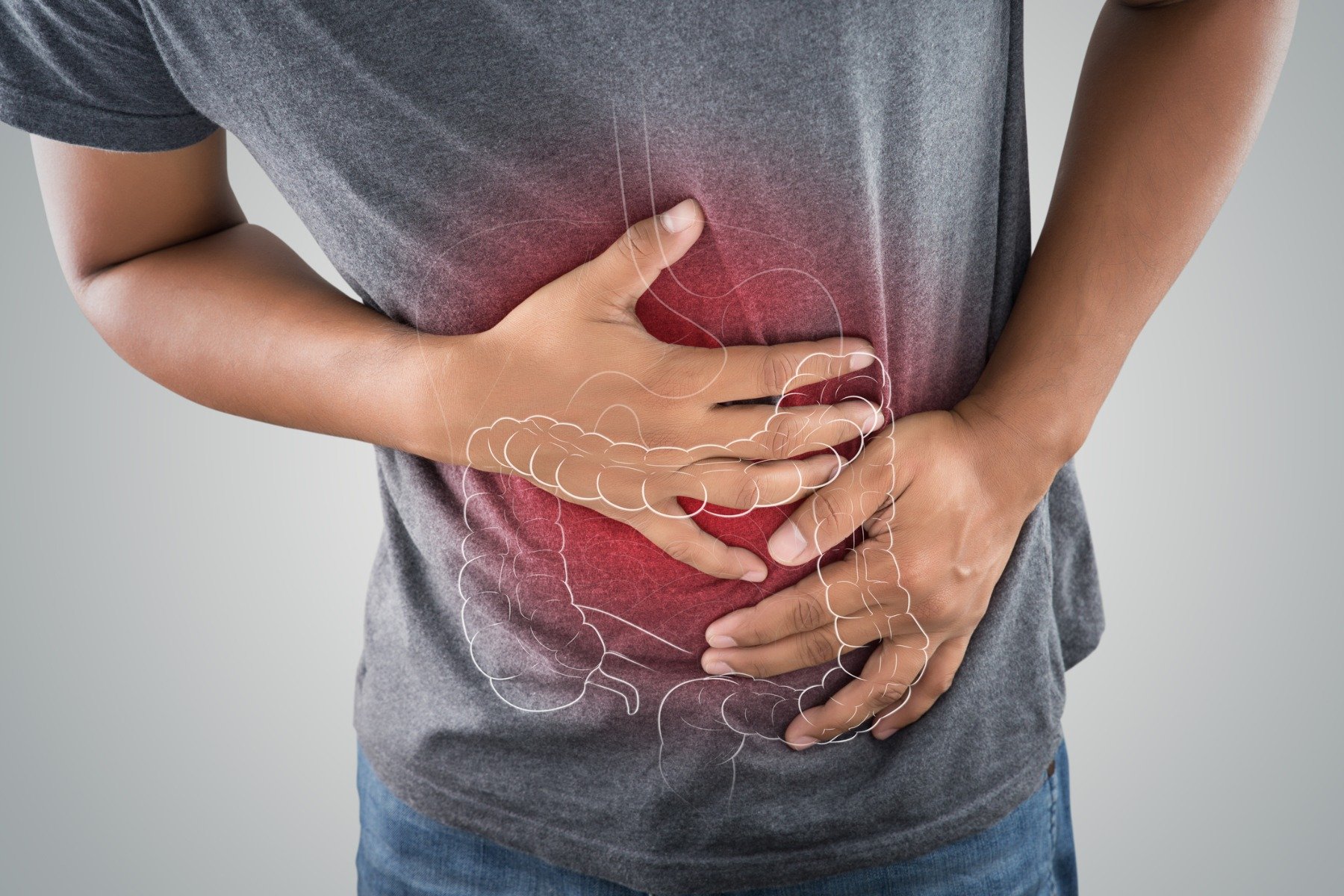
One reason for the laxative effect of sucralose may be that it changes the bacteria content of your intestine. Healthy intestinal flora results in minimal gas production during digestion. Ingestion of an artificial sweetener may, however, increase nitrogen gas and the amount of water in the colon, causing diarrhoea. An animal study published in 2008 in the Journal of Toxicology and Health found that during 12 weeks of usage, sucralose reduced healthy bacteria and increased faecal bacteria. Scientists conclude that because of the destruction of healthy microflora in the body, sucralose can reduce the absorption of some drugs. [11] [12][15]
We hope you have learned all the information you need to know about sucralose thanks to this article. Do you use sucralose products too? You can share your response with us in a comment, and if you liked the article, make sure to support it by sharing
[1] Susan S. Schiffman - Sucralose, A Synthetic Organochlorine Sweetener: Overview of Biological Issues – https://www.ncbi.nlm.nih.gov/pmc/articles/PMC3856475/
[2] Everything You Need to Know About Sucralose – https://foodinsight.org/everything-you-need-to-know-about-sucralose/
[3] Hrefna Palsdottir - Sucralose (Splenda): Good or Bad? – https://www.healthline.com/nutrition/sucralose-good-or-bad
[4] Horne J - Bitter taste of saccharin and acesulfame-K. – https://www.ncbi.nlm.nih.gov/pubmed/11751465
[5] Pepino MY - Sucralose affects glycemic and hormonal responses to an oral glucose load. – https://www.ncbi.nlm.nih.gov/pubmed/23633524
[6] Ma J - Effect of the artificial sweetener, sucralose, on gastric emptying and incretin hormone release in healthy subjects. – https://www.ncbi.nlm.nih.gov/pubmed/19221011
[7] Ford HE - Effects of oral ingestion of sucralose on gut hormone response and appetite in healthy normal-weight subjects. – https://www.ncbi.nlm.nih.gov/pubmed/21245879
[8] Miller PE - Low-calorie sweeteners and body weight and composition: a meta-analysis of randomized controlled trials and prospective cohort studies. – https://www.ncbi.nlm.nih.gov/pubmed/24944060
[9] de Ruyter JC - A trial of sugar-free or sugar-sweetened beverages and body weight in children. – https://www.ncbi.nlm.nih.gov/pubmed/22998340
[10] Fowler SP - Fueling the obesity epidemic? Artificially sweetened beverage use and long-term weight gain. – https://www.ncbi.nlm.nih.gov/pubmed/18535548
[11] Guarner F - Gut flora in health and disease. – https://www.ncbi.nlm.nih.gov/pubmed/12583961
[12] Ley RE - Microbial ecology: human gut microbes associated with obesity. – https://www.ncbi.nlm.nih.gov/pubmed/17183309
[13] Jessica Migala - What Is Sucralose and Should You Be Eating It? – http://www.eatingwell.com/article/290901/what-is-sucralose-and-should-you-be-eating-it/
[14] AlDeeb OA - Sucralose. – https://www.ncbi.nlm.nih.gov/pubmed/23668410
[15] Michael Greger M.D. FACLM - Splenda Side-Effects – https://nutritionfacts.org/2018/10/09/splenda-side-effects/
[16] Shereen Lehman - Is Sucralose (Splenda) Safe to Consume? – https://www.verywellfit.com/what-is-sucralose-and-is-it-safe-2506563
[17] Grotz VL - An overview of the safety of sucralose. – https://www.ncbi.nlm.nih.gov/pubmed/19464334
[18] AlDeeb OA - Sucralose. – https://www.ncbi.nlm.nih.gov/pubmed/23668410
[19] European commission - Opinion of the Scientific Committee on Food on sucralose – https://ec.europa.eu/food/sites/food/files/safety/docs/sci-com_scf_out68_en.pdf


Add a comment